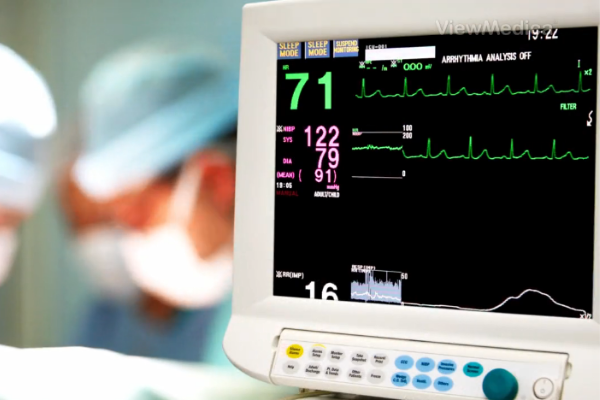Day of Surgery
What to Expect for Your Surgery in Greater DeKalb County
When you arrive for your surgery, you will be taken to a pre-operative area and asked to change into a hospital gown. A nurse will check your:
- Blood pressure
- Temperature
- Pulse
Most patients need to have an intravenous catheter (IV) placed before surgery to allow fluids and/or medications to be delivered quickly and safely through a vein. A nurse or anesthesia provider will start your IV in the pre-operative area. When appropriate, you will be given an antibiotic through the IV to reduce the risk of surgical site infection. Some antibiotics, properly given, can greatly lower your chances of getting an infection after surgery. Your surgeon will identify whether antibiotics are helpful for your situation. When they are indicated, the antibiotics will be given within 60 minutes before surgery and stopped within 24 hours afterward in most cases.
Electronic clippers will be used to remove hair, if needed, at the site of your surgery. We no longer shave hair because infections can occur at small cuts caused by razors.
For your safety:
- You will be asked to verify your name, procedure, surgical site, date of birth and surgeon
- If appropriate for your surgery, the surgeon may mark the surgical site
Anesthesia
The best type of anesthesia for you depends on your medical history and the type of surgical procedure you are having, as well as your personal preference. Your anesthesiologist will review your health history and, if possible, give you options taking into consideration the length and type of surgical procedure you will be having. Then he or she will discuss your anesthesia options with you, including the risks and benefits of the various anesthesia options. We strongly advise you to follow your anesthesiologist's recommendation, but the final decision on anesthetic is yours to make. You will sign a consent form for surgery and anesthesia (a parent or legal guardian must sign for patients under age 18 or for special circumstances). Interpreters will be provided if needed.
- Some patients will breathe through an oxygen mask placed over their nose and mouth, depending on the type of anesthesia they will receive.
- A member of your surgical team will remain by your side until you are safely asleep and throughout your procedure.
- Your anesthesia provider will constantly monitor you from the beginning to the end of your surgery.
- After you have received your anesthesia, final positioning takes place. If you need a urinary catheter, it will be placed at this time.
- The catheter may be in place as you wake up, but it will be removed as soon as it is safe to do so. This may cause a temporary sensation to urinate.
Information about your surgery will be provided to your family on a regular basis. Your family and friends will be told if you require some time in the Post Anesthesia Care Unit (PACU) where staff can monitor your blood pressure and heart rate and administer other medications as needed. Your physician will decide whether or not you need to stay overnight following surgery.
During surgery
You will be taken to the operating room on a bed and given a surgical hat to wear. You will be asked to verify your name, procedure, date of birth, and surgeon. Then, you will be moved to the surgical bed. The operating room may feel cold. Operating room staff will offer blankets or other warming devices to cover you.
Your vital signs are facts about your health that can be measured and monitored over time. Throughout your surgical experience, your vital signs (which include temperature, heart rate, breathing rate, blood pressure and presence of pain) will be measured. In addition, the level of oxygen in your blood will be monitored. Most vital signs are measured constantly using automatic devices. But monitoring is more than just watching. If changes in your vital signs indicate a danger to your health or safety, the anesthesiologist will initiate appropriate treatment. To measure your vital signs, a specialist will use:
- Cold, adhesive pads on your chest to monitor your heart rate
- A cuff on your upper arm to monitor your blood pressure
- A clip on your finger to monitor your oxygen level
Blood clots are more likely to develop while you are not moving during your surgery. The more complicated your surgery, the higher your risk for developing blood clots. Your doctor will know your risk and will take the necessary steps to help prevent clots, such as giving you the right medicine before your surgery.

